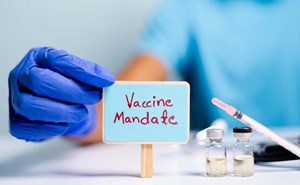The ongoing shortage of life-saving medicines is one of the biggest challenges emergency physicians face on a daily basis. Fortunately, progress is finally being made to address this critical issue. Specifically, the Food and Drug Administration (FDA) recently released its long-awaited Drug Shortages Task Force report, “Drug Shortages: Root Causes and Potential Solutions.”
For those of you who enjoy your weekly taste of regs and eggs, you’ll remember that ACEP played a key role in encouraging the FDA to focus on finding solutions to address drug shortage crisis. In 2018, ACEP worked with congressional champions to develop letters to the FDA calling for the creation of the Task Force to determine the root causes of drug shortages and develop recommendations for Congress. Then-FDA Commissioner Scott Gottlieb established the Task Force within weeks after receiving the Congressional letters.
Throughout the development of the Task Force’s report, ACEP participated in several meetings with the FDA and submitted comments in January 2019 in response to the FDA’s November 2018 public meeting.
Overall, the report concludes that there is no simple approach to address drug shortages. The Task Force also acknowledges that the solutions proposed in the report will “require multi-stakeholder efforts and rethinking of business practices throughout the health care system.” Specifically, the report identifies three root causes of drug shortages:
- Lack of incentives to produce less profitable drugs;
- The market does not recognize or reward manufacturers for mature quality management systems; and
- Logistical and regulatory challenges that make it difficult for the market to recover after a disruption.
It also provides three recommendations for “enduring solutions”:
- Create a shared understanding of the impact of drug shortages and the contracting practices that may contribute to them;
- Create a rating system to incentivize drug manufacturers to invest in achieving quality management system maturity; and
- Promote sustainable private sector contracts.
The report touches on several ACEP priorities, including the need to provide greater transparency to ensure adequate competition in the marketplace, and better supply chain monitoring and response to guarantee the availability of lifesaving emergency medications.
Going forward, this report provides a solid foundation to inform ACEP’s continued work with the FDA and Congress on this important issue. In fact, ACEP’s President, William Jaquis MD, FACEP, will be meeting with the nominee for FDA Commissioner, Stephen Hahn, MD, FASTRO, to discuss the report, the impact drug shortages have had on the practice of emergency medicine, and ACEP’s leadership role in working to mitigate these shortages.
Until next week, this is Jeffrey saying, enjoy reading regs with your eggs!







